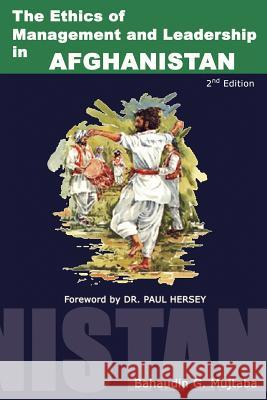The Ethics of Management and Leadership in Afghanistan » książka
The Ethics of Management and Leadership in Afghanistan
ISBN-13: 9780977421107 / Angielski / Miękka / 2006 / 264 str.
In this book, discussions have been made regarding the roles of management and leadership in Afghanistan to deal with such challenges, and recommendations for workforce training and rehabilitation have been explored and provided for future development through effective leadership. The people of Afghanistan are doing what they can to develop the country; however, lack of proper education related to management skills and leadership training as well as lack of proper resources make it extremely difficult to have a speedy progress. This material is prepared for managers and leaders to provide explanations, inspirations, and work for perspiration. The word perspiration is used to describe the skill-based topics as they need to be implemented in order for them to become useful. So, application of this knowledge is what delivers results and managers need to make these skills a habit or a way of life for themselves and their workforce. The various chapters in this book highlight effective management and situational leadership as the main component or tool for all political, non-profit, and corporate leaders in Afghanistan as they attempt to influence their colleagues, superiors, employees, and others in the community to bring about appropriate changes in the workforce. The book is written for the general population around the globe as it goes through the turmoil of war in the past years, the current situation, and some suggestions for the next twenty years for economic recovery and workforce development. So, it briefly discusses the realities of war, factional conflicts, and what the current administration is doing with the assistance of officials from the United Nations and other foreigncountries such as France, Germany, Canada, the United States, and Turkey (just to name a few) to bring about some relief to the injured and maimed people of Afghanistan. The book covers several management functions and characteristics and it purposefully discusses the concept and skills of situational leadership as the main remedy for making the country prosper through the appropriate capacity development of each individual. The book is written for workforce development and training of Afghans as well as for use by colleges and government officials in Afghanistan. Some of the international colleges and universities may also adopt this material for cross-cultural discussions, anthropology, understanding developing economies, and workforce skills needed in such labor markets. Universities, colleges or professors adopting this book or any of its chapters may contact the publisher or the author for receiving the available supplementary facilitator's materials such as test banks, exercises and/or Power Point slides for presentation.











